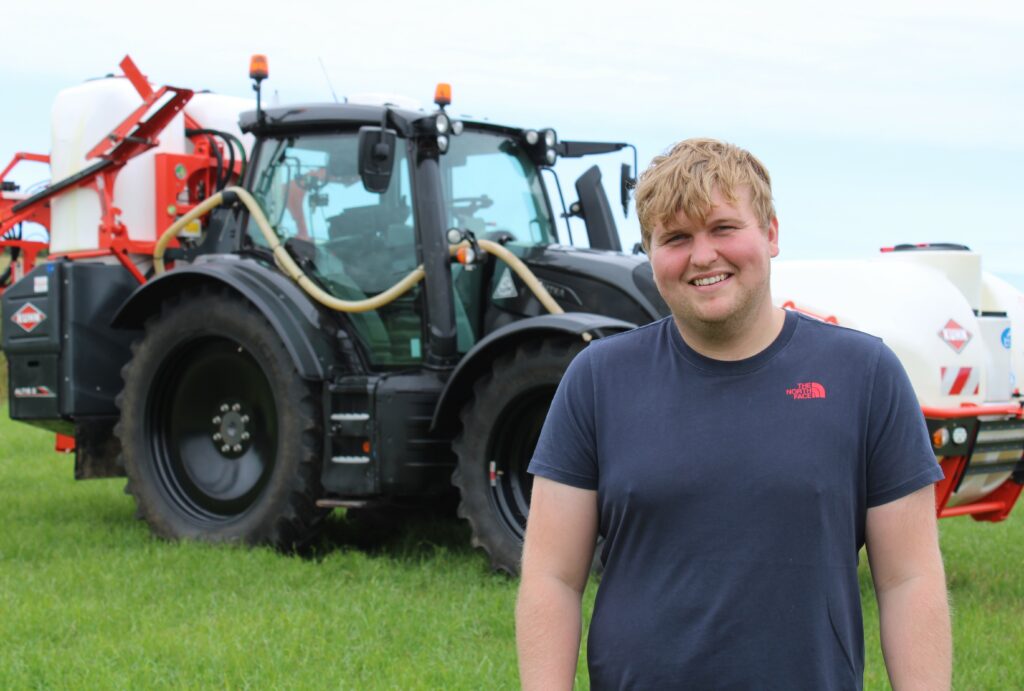An Anglesey contractor has invested in a KUHN mounted sprayer to replace his Knight K1840 self-propelled machine. Fuel and time saving has since seen him cover the whole of the island and take on work in North Wales.
At 18 years old, Rhys Jones took on his father’s local contracting business in 2015. With only a handful of spraying contractors on the island, he immediately saw an opportunity to grow the business by increasing the radius he operated.
“The work was there, and I had the Knight, but I soon realised it was uneconomical to cover the whole island using a self-propelled. I looked at trailed alternatives, but the costs were too high, so I settled on the KUHN Altis 2002. It operates at 12km/h in the field, which is similar to the self-propelled, but on the road I can travel at 50-60km/h which makes covering the island much easier,” he explained.
The Altis offered the chance to add another tractor to the business which now runs a Valtra T234, and a N174 which is the principal tractor for the sprayer. With auto shut-off, 24 metre gullwing booms, a 2200 litre rear tank and 1500 litre front tank, the Altis was similar to the self-propelled but has provided a significant fuel and time saving to Mr Jones.
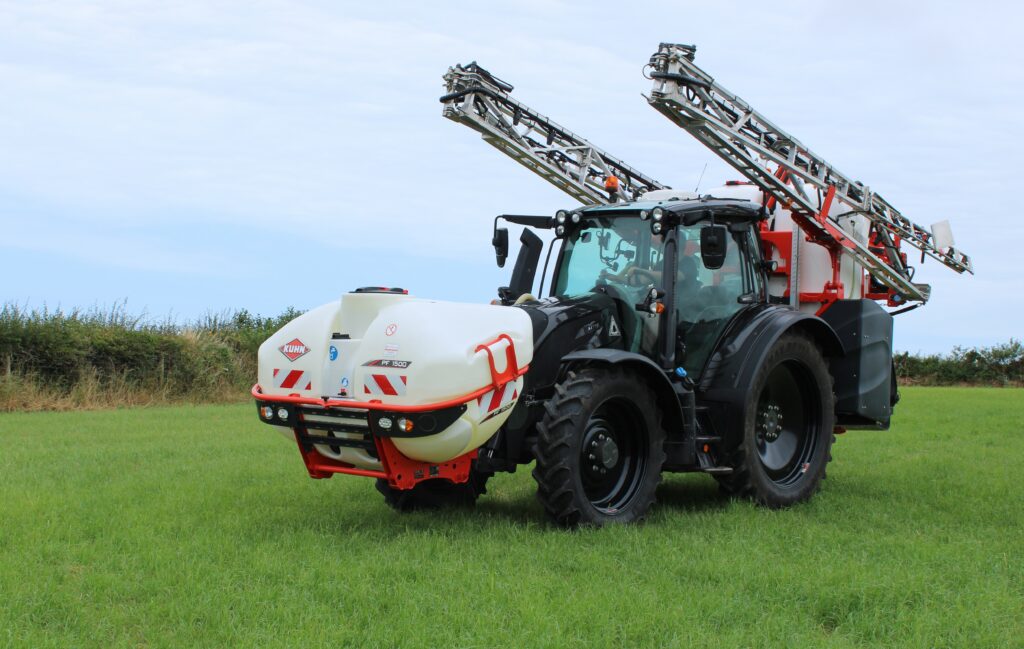
“The steel booms on the old machine were heavy and it was slower on the road. Having two tanks means I can use the front to carry water which saves trips when I am on farm. If I cover three or four farms in a day, the time saving can be up to two hours. Also, on the road I have halved my fuel bill, saving 8-9 litres an hour which, with the rise in fuel prices, is a significant cost saving,” he said.
Operating from the family beef farm on the northern most point of Anglesey, Mr Jones has chosen to expand the business to cover the whole island and beyond to make best use of his machinery purchases. Working predominantly on small farms with small fields, he has found the Altis to be the perfect choice.
“The A-frame means I can hitch in five minutes. The booms are quick to open and close and the gullwing design means less wear and tear over time. The best feature is the DILUSET cleaning function which enables me to start the cleaning of both tanks from the cab using the 170 litre front clean water tank and the 300 litre rear tank. It’s particularly good if I am changing from a weed killer to a foliar fertiliser, which is often the case on grassland,” he said.
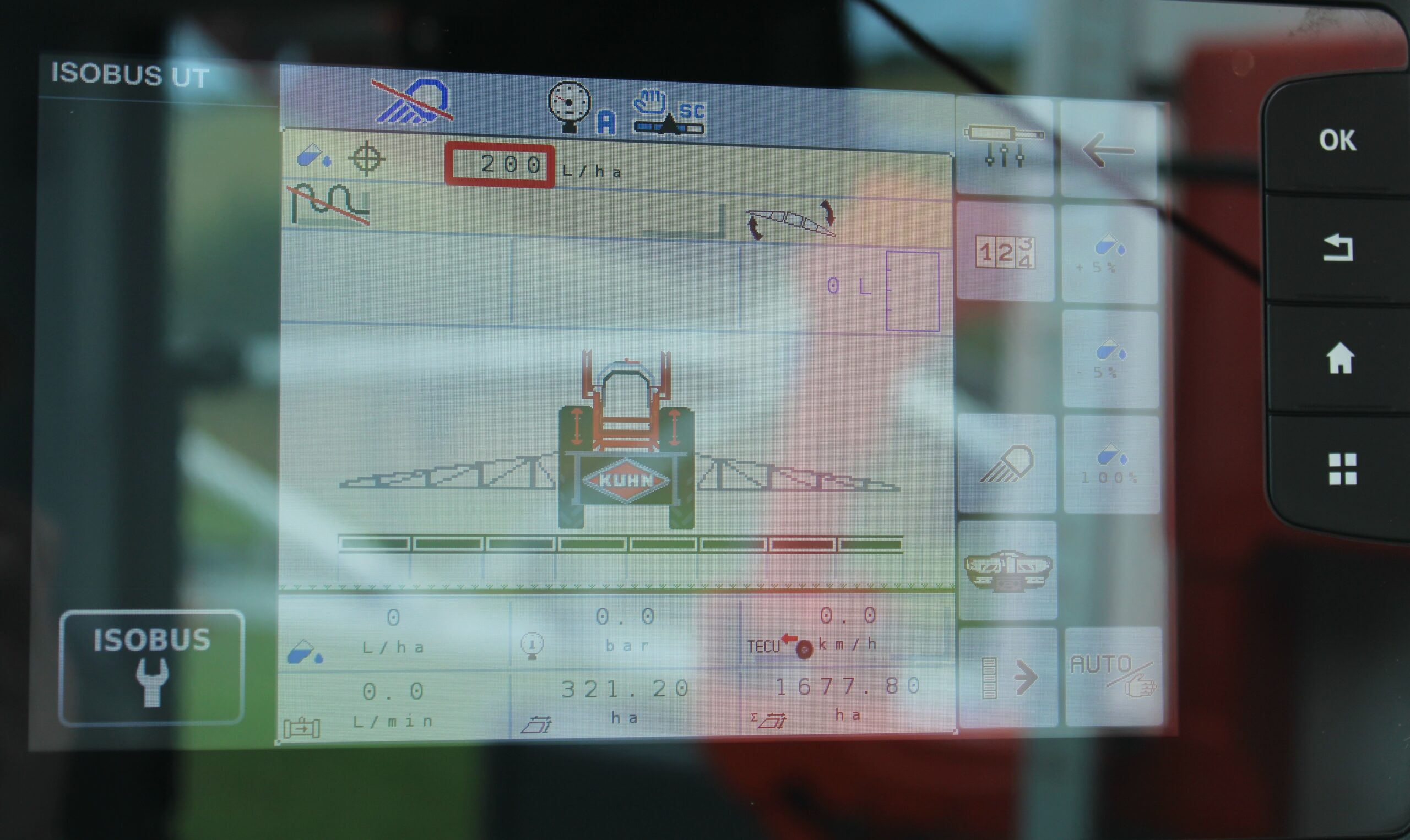
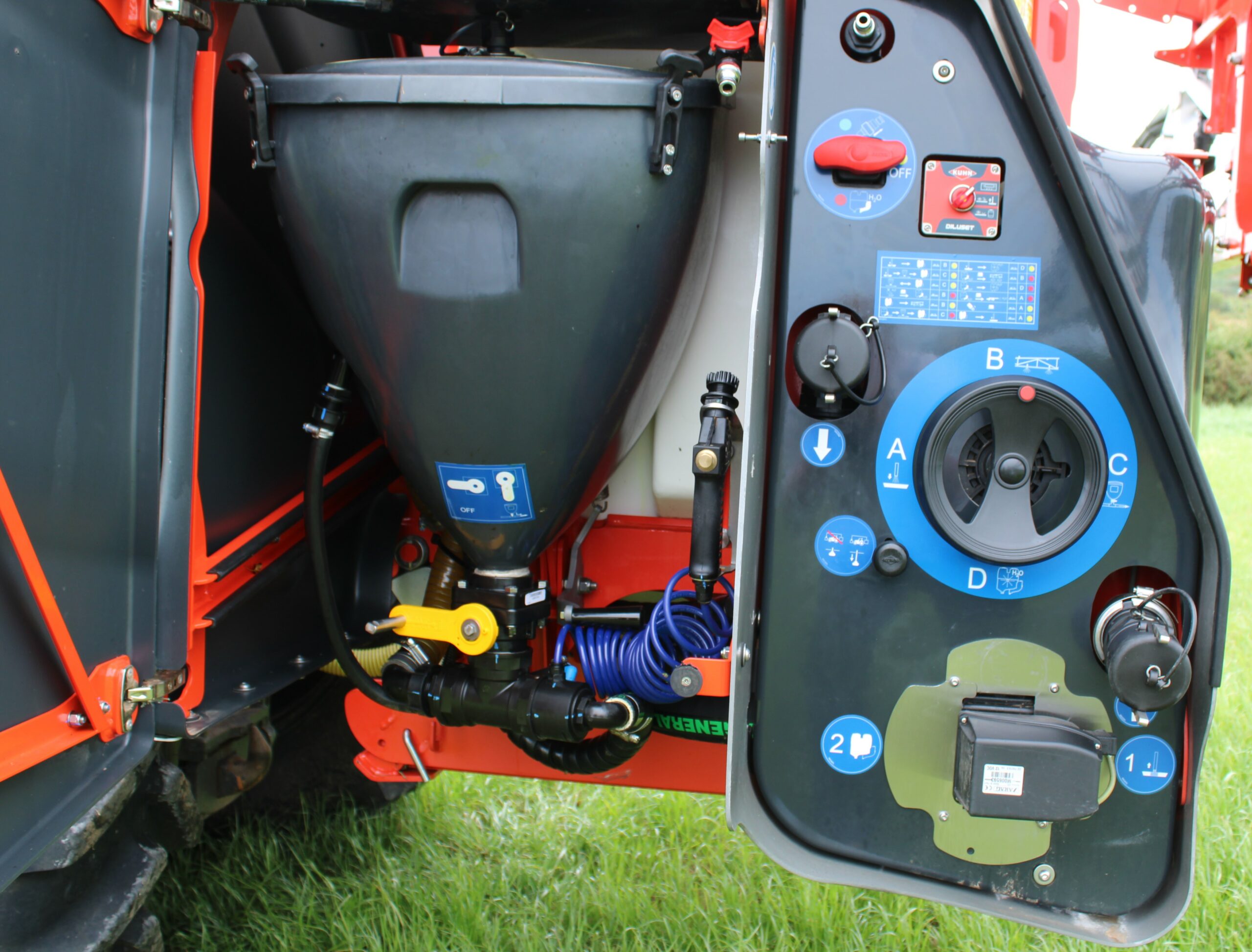
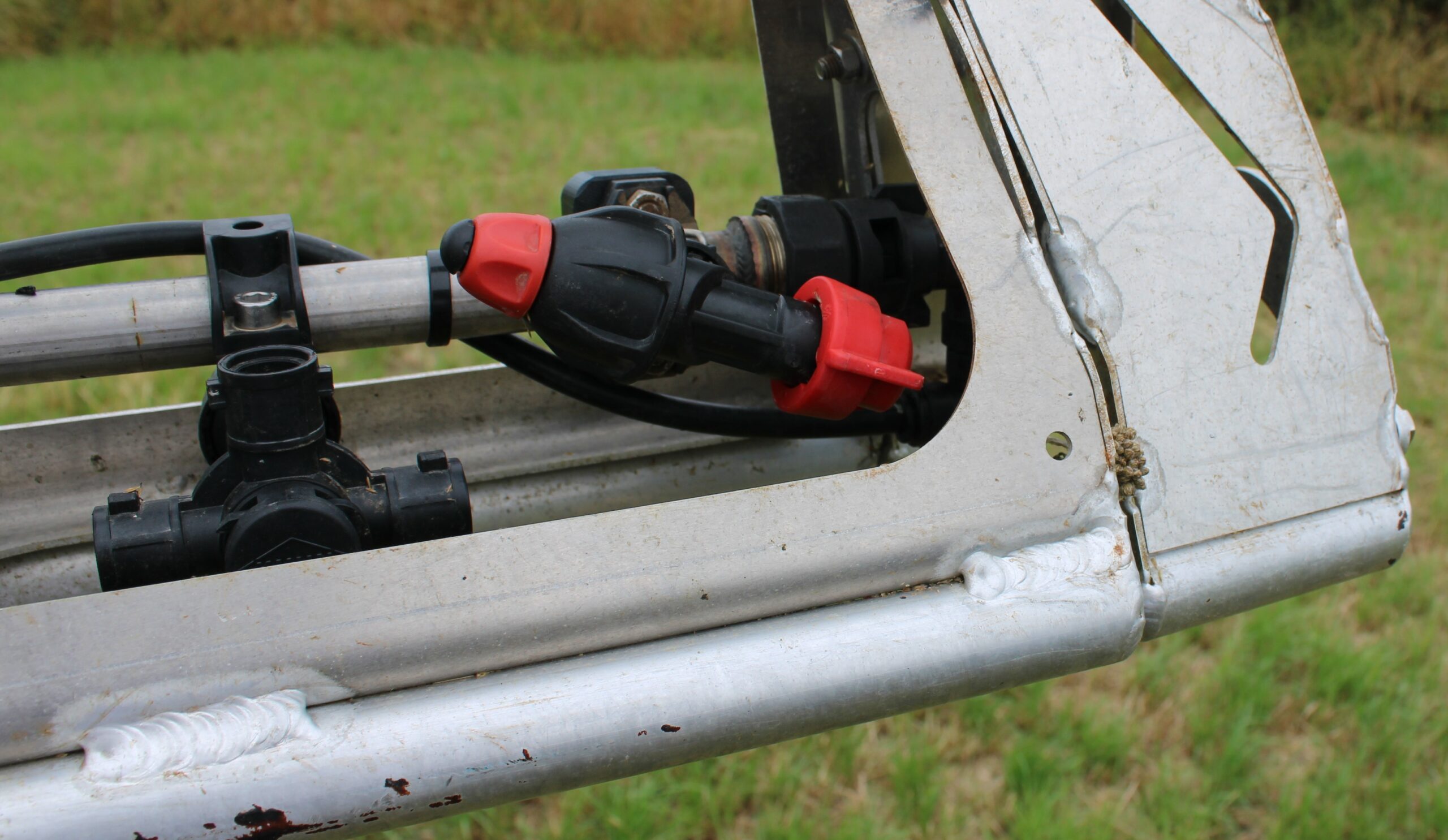
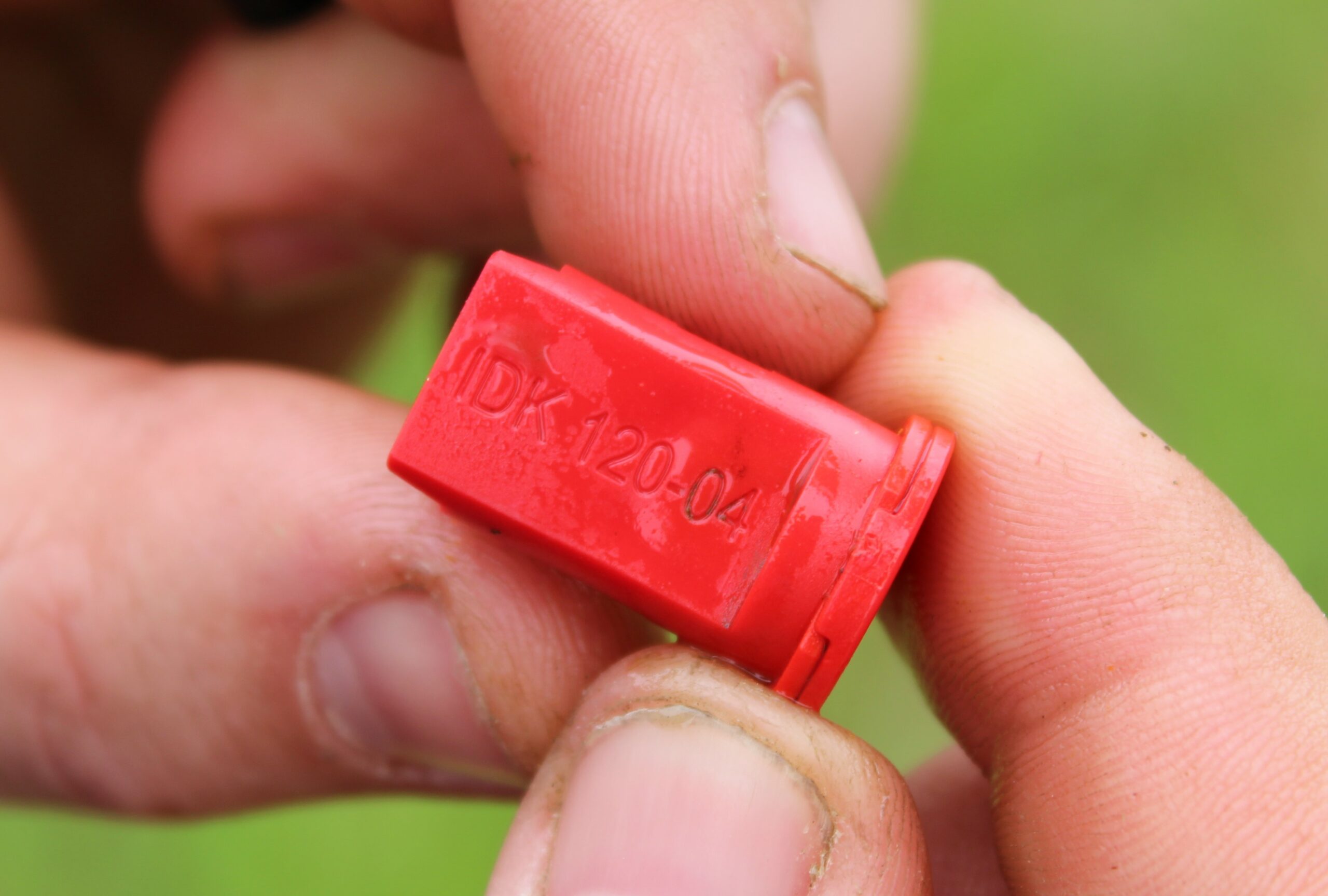
Auto shut-off on the Altis makes spraying small fields significantly easier for Mr Jones. He has also installed a nozzle on the end of each boom to spray hedges at headlands. The accuracy, manoeuvrability and added benefit of headland spraying has been well received by his customers because he can also control weeds in the hedges.
“With the auto shut-off I realised that I could fit wider nozzles to the ends of the booms and shut down everything else. This means that when I turn at the headland, the end nozzle will spray into the hedgerows which means my customers don’t have to use knapsacks or ATV sprayers,” he said.
To reduce drift, he added 04 nozzles. The stability of the boom is good, not quite that of the steel booms on the self-propelled machine but it is a small compromise for the weight saving he has achieved.
‘I would never go back to steel because of the weight. Each boom on the Altis is in two sections, as opposed to three or even four on some 24 metre machines. Every joint is a potential problem area in my opinion, so this configuration is preferable when you are looking for long-term reliability,” he said.
The Altis, like many of Kuhn’s sprayers, has aluminium booms, which offer an effective combination of strength without excessive weight. The machine is notable for its suspended mounting, which reduces the stresses on the machine when in transport. More damage is done to sprayers in transport than when in use in the field, so this is another important advantage for Mr Jones, who travels long distances and has limited time for repairs.
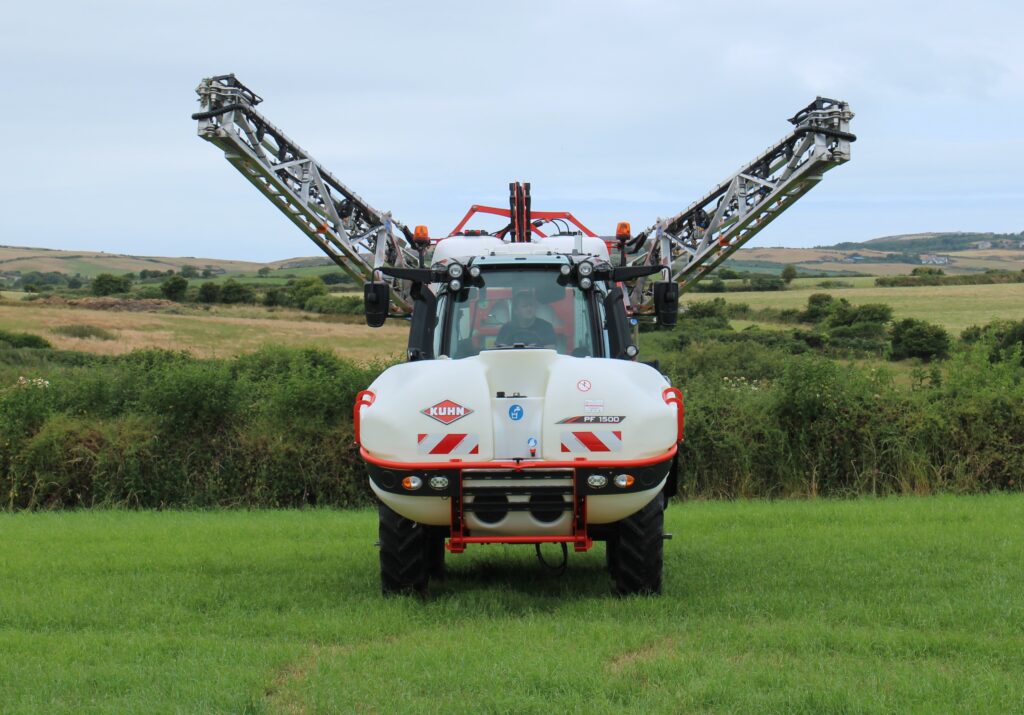
Mr Jones now sprays 2000 hectares across the island. Most is grassland, but he covers 200 hectares of maize and a small area of arable crops too. His aim is to bring on a full-time employee. However, finding labour on Anglesey is no easy task.
“Construction and office work pays better than agriculture so many young people have left Anglesey. Those still here, work on their own farms, so finding someone who can work full time is going to be tricky when the time comes,” he said.


